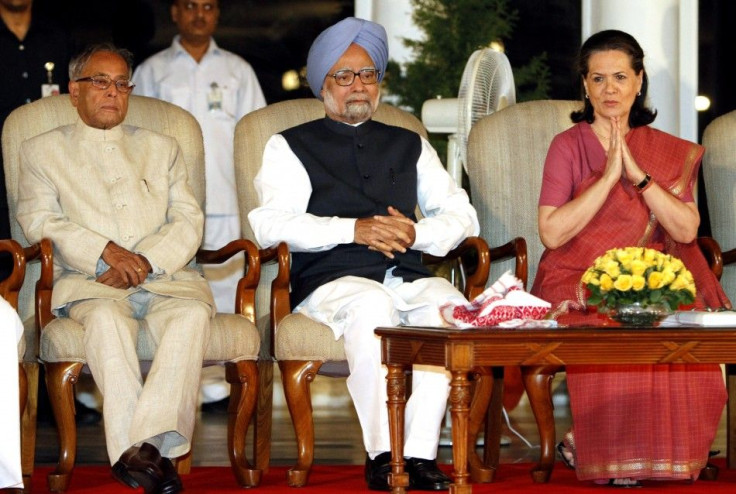Excessive Regulation, Policy Paralysis Scare Foreign Investors Away From India
Analysis

The lack of bureaucratic support as well as aggressive regulation and tax policies are scaring away foreign investors from India, the chairman of Honeywell International has said, according to the Wall Street Journal.
Foreign companies are starting to become scared here. They are starting to say, what am I doing here? David M. Cote asked, according to the WSJ.
Foreign Investors (FI) have been complaining about the uncertainty shrouding the Indian economy for quite some time. Many companies from various sectors have been sending panic signals over government policies, indicating an all is not well investment scenario in one of the world's biggest emerging markets.
India, which was once considered a haven for foreign investors, is losing its sheen due to issues like retro-taxing, policy reversals, corruption scandals and aggressive regulations.
Though India still has an attractive growth rate with huge human resource pool, investors say they are wary of investing in the country. I'll hire people here, but I'll be a lot more reluctant about investing, including making acquisitions. I am a lot less keen on expanding our presence by putting money into the country, Cote told the WSJ.
Cote was referring to the proposed amendments to the Income Tax Act of 1961 which aim at taxing offshore mergers and acquisitions that result in transfer of Indian assets with retrospective effect.
This amendment, which was proposed in the Finance Bill 2012, has been criticized by foreign investors and trade bodies.
The US ambassador to India, Nancy Powell, said last week the bill discriminated against foreign investors. Several recent policy decisions cause significant concern and dampen sentiment about India's investment climate. The adoption of manufacturing policies discriminatory to foreign companies and the inclusion of retroactive tax provisions in the Finance Bill are two examples, Powell said in her first official meeting in India, according to the Deccan Herald.
Indian market analysts also believe that though foreign investors would be ready to accept India's taxation policies, the retro effect will damage its credibility.
If India puts all these taxes for investors, people will probably come to terms with them and accept them but what would be very unsettling is that this is done on a retroactive basis. So that would be something to watch out for and the uncertainty that the tax policymaking is creating right now has to be resolved, Punita Kumar Sinha, Managing Partner of Pacific Paradigm Advisors, told the Economic Times.
The proposed law, if passed by the parliament, will enable the Indian authorities to claim more than $2 billion from British telecom company Vodafone from a 2007 deal.
Several other steps taken by the government and policy regulators in the country have made the foreign investors paranoid about investing in the country.
The telecom sector is facing the toughest challenge as a recent court ruling canceled as many as 22 2G spectrum license allocations made by a tainted former telecom minister. The Indian telecom regulatory body, TRAI, has ordered the re-auction of the 2G spectrum based on newly-set regulations, which the FI's are finding difficult to adhere to. Telecom players, both Indian and foreign, say the new fee structure and regulations are not competitive.
The FIs, who with their Indian partners, had been allotted the telecom spectrums by the tainted minister, A. Raja, are now finding their investments locked up.
The situation has forced some of the companies to quit Indian market as they fear that the Indian situation is affecting their balance sheet adversely.
Telenor, which holds shares in Uninor, said a few days ago that the company wrote off its remaining fixed and intangible assets in India worth Norwegian Krone 3.9 billion (over $680 million). The company said the uncertainty has increased significantly forcing them to opt out, the Times News Network (TNN) reported.
Sistema and Etisalat, two other companies that were affected by the 2G spectrum cancellations by the TRAI, also have said that their exposure to India is negatively impacting the balance sheets.
Etisalat had written off around $820 million of its investment, while Sistema, which like Telenor is still to announce a pullout, took a $700 million hit a TNN report said.
Market analysts feel that the government has failed to spur enthusiasm in the economy. The coalition politics in the country, coupled with several corruption scandals involving ministers, higher military and bureaucracy, has resulted in aggressive scrutiny and regulations of the policies by the Indian judiciary and regulators. It has also paralyzed the government which is hesitating to take any strong steps.
Though the Indian economy is growing at nearly 7 percent a year, investors feel that it has a higher potential for growth if it is supported well by the government and the bureaucracy.
I worry that the bureaucracy is becoming stultifying in India. My frustration with India is, while it grows at 7% a year, it could be growing at 11% or 12%, Cote said.
Other issues like spiraling inflation and the falling value of the rupee make the outlook grim for Indian economy. Global credit rating agency Standard & Poor's Wednesday downgraded India's credit outlook to negative from positive and warned of a further downgrade if there was no improvement in the fiscal situation.
Moody's Analytics went a step further and put the policy paralysis in sharp focus. The government has lost all momentum and progress is unlikely on existing bills covering pressing issues such as land reform, fuel subsidies, labor rights, and the much-discussed supermarket reforms between now and the next national election in 2014, Moody's Analytics Senior Economist Glenn Levine said, according to the Indian Express newspaper.
© Copyright IBTimes 2024. All rights reserved.












